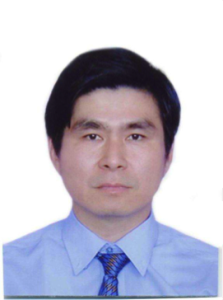Dr. Gaoyong Luo, Chair
Department of Electronics Information, Guangzhou University, China
Codec Enabled Audio Communications over IP/Mobile Internet
Time & Date: 5 pm – 6 pm, Thursday, October 9, 2014
Location: EME 1153, UBC, Okanagan Campus, Kelowna, BC
Talk Abstract: The Mobile Internet (by 3G/4G/5G network) is very widely spread today. Audio over Internet Protocol (IP) terminals are increasingly being used in radio operations for streaming of radio programs over IP networks from remote sites or local offices into main studio centers. The IP networks used are invariably well-managed private networks with controlled quality of service, which refers to the ability to reduce delay and jitter over IP. The internet is increasingly also used for various cases of radio contribution, especially over longer distances. Radio correspondents will have the choice in their equipment to use either the Mobile Internet/WiFi or other available IP networks to deliver audio, reaching many millions of people using terminals such as office desktops, personal digital assistants (PDAs) and mobile phones. With the increase of bandwidth (data rates) available for mobile internet user, on-line conversation by audio over IP instead of voice over IP is now possible, which offers better quality of service. It is expected that audio over IP systems will be used more and more for live IP streaming. However, with very few exceptions, IP equipment from one manufacturer has until now not been compatible with another manufacturer’s unit. Some of the audio over IP units are still in a somewhat immature, more or less prototype stage but further development continues. The requirements for interoperability are based on the use of RTP over UDP for the audio session and SIP for signaling. The packet payload audio structure is defined for commonly used audio formats in radio contribution. Four mandatory codec formats are specified: G.711, G.722, MPEG Layer II and linear PCM. Other audio formats can be used as well, but the latency is a big concern. The audio encoding itself introduces delays from milliseconds for PCM to more than hundreds of milliseconds for some bit-rate reduced coding formats. In the case of a two-way conversation, the total round trip delay should be kept as low as possible, because otherwise a conversation becomes difficult, especially when non-experienced reporters or the general public are interviewed. In addition, the IP network itself has a delay, from a few tenths of milliseconds in well managed networks up to 500ms or more on very long distances over the internet or satellite links. This talk will address the continuous development of IP networks combined with more sophisticated audio over IP terminals in the era of mobile internet. Connections over the internet with different types of telephony and professional units for broadcasting will improve telephone audio quality and worldwide access to Reporters by the newly developed WiFi terminals using very low delay audio coding technology, which results in IP audio codecs that can provide rock solid studio to transmitter link (STL), remote broadcast and audio distribution solutions. Small handheld units and also software codecs in mobile phones will provide very efficient tools for users. This talk is based on the collective inputs from many manufacturers, and long term research on audio communications over IP and wireless channel.
Speaker Biography: Dr. Gaoyong Luo is a Professor and has been heading the Department of Electronics Information at Guangzhou University. He has a Ph.D. in Electrical Engineering from Brunel University, UK. Since 1998, he has been with Buckinghamshire Chilterns University College and Buckinghamshire New University. He has taught thousands of students and supervised the work of master students and Ph.D. students. His main research interests are in the field of wavelets, spread spectrum communications, wireless positioning, remote sensing, audio coding, and power line communications, with expertise in coding and modulation theory and applications to communication systems. Dr. Luo has published over 70 refereed journal/conference papers and many patents. He is the author of Wavelets in Engineering Applications (Science Press, 2014). He is an IET member, and serves as a technical program committee member or session chair for a number of international conferences. He has given invited talks on signal processing, communications and internet of things technology. He serves as reviewer in many including IEEE and IET journals and conferences, such as IEEE Transactions on Image Processing, International Journal of Remote Sensing, IET Electronics Letters and International Symposium on Intelligent Signal Processing and Communication Systems.
Refreshments will be provided. For further information please contact:
Julian Cheng (Email: julian.cheng@ubc.ca)

